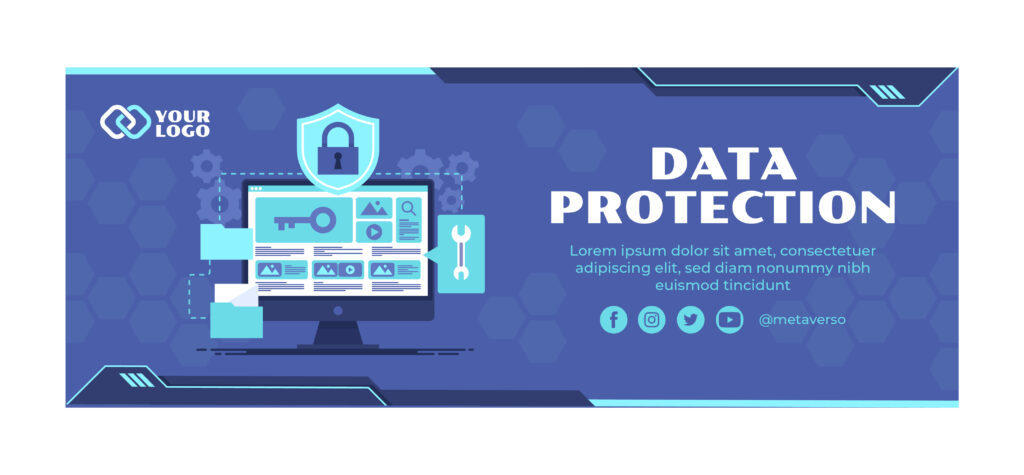In an era where cyber threats are constantly evolving, businesses cannot afford to compromise on security.
Off-the-shelf software solutions may seem convenient and cost-effective, but they often come with security limitations that expose businesses to unnecessary risks.
This is where custom-built applications play a crucial role.
Security measures are designed to meet a company’s specific needs, and custom software provides a more robust, reliable, and adaptable defense against cyberattacks.
Key Security Advantages of Custom-Built Applications for Businesses
Below are the key security benefits of custom-built applications for businesses:
1. Security Design Focused on Business Needs
Custom applications are built from scratch to align with your business processes and objectives.
Unlike pre-built software, they are not overloaded with unnecessary functions that can introduce weak points.
This allows developers to apply security measures specific to your workflows, data flow, and system integrations.
Every function is tested for security before deployment, reducing the chances of backdoors or hidden risks.
Businesses can decide on encryption methods, user access levels, and monitoring features during development, ensuring better protection from day one.
When security is a primary consideration during coding and system architecture, vulnerabilities become much harder for attackers to exploit.
This focused approach gives organizations confidence that their application aligns with their security policies while avoiding common flaws present in mass-market solutions.

2. Smaller Attack Surface
Commercial software often contains extra features to meet general market demands, and these unused functions can become an entry point for hackers.
For example, an unnecessary module or integration option might allow attackers to run malicious scripts or gain unauthorized access.
With a custom-built application, the software includes only what is required for your operations.
Eliminating unnecessary complexity greatly reduces the attack surface. When fewer components exist, there are fewer areas for hackers to target.
This is one of the most effective ways to reduce the risk of cyberattacks. Security audits also become easier because the application is less complex.
With clear visibility and minimal extra features, monitoring becomes straightforward, and any unusual activity can be detected quickly.
This minimizes the risk of exposure to common exploits and automated attacks.
3. Compliance with Industry Standards
Businesses in sectors like healthcare, finance, or e-commerce often need to comply with strict regulations such as GDPR, HIPAA, or PCI DSS.
Off-the-shelf software may not meet these rules completely, and modifying it for compliance can be costly or impossible.
Custom applications solve this issue by allowing developers to include security protocols that satisfy these legal requirements from the start.
This includes features like encryption for sensitive data, secure log management, and user activity tracking.
When compliance is built into the system, audits become easier and less stressful.
It also protects the organization from fines and legal action that may occur due to violations.
Moreover, as regulations evolve, custom applications can be updated quickly without waiting for a vendor update.
This flexibility ensures that your business remains compliant at all times, reducing legal risks.
4. Strong Access Control
Unauthorized access is one of the most common causes of data breaches.
Custom applications allow businesses to define how users interact with the system at a very detailed level.
Role-based permissions can be created so that employees only access the data and features they need for their job.
Multi-factor authentication and biometric verification can also be integrated for additional security. This lowers the risk of internal misuse and unintentional data leaks.
Another advantage is the ability to set temporary or time-based permissions for contractors or external partners.
These features are not always available or customizable in standard software.
Managing who can access what and for how long helps businesses significantly lower the risk of misuse.
Custom-built solutions make it possible to implement these security measures without compromising the user experience or slowing down workflows.

5. Lower Chances of Common Attacks
Hackers often target popular commercial software because vulnerabilities in these systems are well-documented and widely shared on the dark web.
Automated tools exist to exploit these weaknesses. Custom-built applications are unique and not widely used, making them harder to attack.
Cybercriminals cannot easily find pre-made scripts to exploit your system because it does not follow the same structure as public software.
This forces attackers to spend more time and resources, which they usually avoid.
Additionally, since the application is created specifically for your business, security patches can be released instantly if any issue is detected.
This quick response capability further decreases the chances of successful attacks.
Being less predictable and regularly monitored, a custom application adds an extra layer of defense against widespread malware campaigns and automated exploits that often affect common platforms.
6. End-to-End Encryption
Protecting sensitive data is essential for every business. Custom-built applications can include strong encryption methods that cover all stages of data handling.
From user input to database storage and transmission across networks, encryption ensures that even if data is intercepted, it cannot be read without the correct key.
Businesses can choose advanced encryption standards suitable for their industry and update them as new technologies emerge.
Secure APIs can also be implemented to maintain data integrity during communication between systems.
This reduces the risk of man-in-the-middle attacks and data leaks.
Unlike generic solutions that apply basic encryption across all users, custom software can apply encryption levels based on the sensitivity of the data.
For example, payment details and medical records can have higher security than general information. This approach guarantees privacy and regulatory compliance.
7. Faster Security Updates
One major risk with third-party software is the delay in receiving security updates.
When a vulnerability is found, businesses must wait for the vendor to release a patch, which can take weeks or even months.
During this time, attackers can exploit the flaw. With custom-built applications, updates are completely under your control.
The development team can immediately patch vulnerabilities as soon as they are detected. This reduces the window of exposure to potential threats.
Furthermore, businesses can perform regular code reviews and security testing to maintain a strong defense.
This is particularly important in industries where real-time protection is necessary.
Quick updates ensure that security measures remain current without relying on an external company’s timeline.
This independence is a key advantage for businesses that prioritize rapid response and continuous protection against emerging threats.

8. Secure System Integration
Companies often use multiple tools and platforms for daily operations, and insecure connections between these systems can create vulnerabilities.
Custom-built applications can integrate securely with your existing infrastructure without relying on unverified third-party connectors.
Developers can use safe communication protocols, encrypted channels, and authentication layers to prevent unauthorized access during data transfer.
This reduces the risk of breaches that occur due to weak integration methods.
Furthermore, businesses can choose which systems interact with each other and control the level of access granted.
This customization is not always possible with off-the-shelf software, which often uses generic integration options.
Secure integration ensures that even if one system is compromised, the attacker cannot easily move laterally across other systems.
Controlling integration points helps businesses create a strong security perimeter around their critical data and applications.
9. Custom Monitoring and Logging
Monitoring user activity and system performance is vital for detecting unusual behavior that may indicate a security breach.
Custom-built applications allow businesses to implement detailed logging and monitoring systems based on their risk factors.
For example, businesses can track login attempts, data transfers, and administrative actions in real time.
Custom alerts can be set for suspicious activities, such as multiple failed logins or data access outside business hours.
This proactive approach enables a faster response before major damage occurs.
Standard software often provides basic monitoring, but it may not capture all events relevant to your business.
With custom monitoring, every critical action is recorded and can be reviewed during audits or investigations.
This improves accountability and makes it easier to identify insider threats or external attacks early, reducing the overall impact on the organization.
10. Reduced Dependency on Third Parties
Ready-made software solutions often require businesses to depend on external vendors for updates, security patches, and technical support.
This dependency can be risky if the vendor fails to respond quickly during a security incident.
Custom-built applications eliminate this problem because the control remains with your internal team or a trusted development partner.
You decide how updates are managed, which security standards are applied, and when improvements are made.
There is no need to wait for a vendor’s schedule, and there is no risk of delayed patches exposing your system to hackers.
Reduced dependency also means fewer third-party access points, which decreases potential vulnerabilities.
When your business controls its software, it ensures consistent and timely security measures without relying on external organizations whose priorities may not always align with your urgent security needs.

11. Protection Against Insider Threats
Not all security risks come from external hackers. Employees or contractors with system access may misuse their privileges, whether deliberately or accidentally.
Custom applications allow businesses to build features that prevent such risks.
These include strict access controls, time-based permissions, detailed activity logs, and alerts for unusual actions.
For example, if an employee tries to download large amounts of data, the system can immediately send a warning or block the action.
These security layers limit insider misuse and maintain accountability for all actions.
Additionally, businesses can apply dynamic policies that adapt based on user behavior, reducing the chance of privilege abuse.
Addressing insider threats helps custom-built applications deliver complete security against both internal and external risks.
Why should businesses choose Brandout for custom web development solutions?
Businesses should choose Brandout because we specialize in creating custom web development solutions that match your exact requirements.
Unlike pre-built templates, our team designs and develops websites from scratch using the right technology stack for your business.
Conclusion:
Security is no longer an optional feature but a core requirement for any business operating in the digital space.
Custom-built applications provide advanced security benefits that off-the-shelf solutions cannot match.
They offer better control over data handling, access management, compliance, and integration while reducing exposure to common attacks.
Features such as encryption, real-time monitoring, and rapid updates strengthen your defense against cyber threats.
For businesses serious about protecting their data and operations, custom-built solutions are the most reliable way to stay safe in an increasingly risky digital environment.
Most Asked Questions:
Why are custom-built applications more secure than off-the-shelf software?
Custom-built applications are developed specifically for your business needs, which means unnecessary features and common vulnerabilities found in generic software are eliminated. This reduces the attack surface and makes it harder for hackers to exploit.
How do custom applications help with regulatory compliance?
They can be designed with security measures that meet industry regulations, such as GDPR, HIPAA, or PCI DSS, from the start. This makes compliance easier and prevents costly legal penalties.
Can custom-built applications reduce the risk of insider threats?
Yes. They allow you to implement features like role-based access control, detailed activity logs, and alerts for unusual behavior, reducing the chance of unauthorized access or misuse by internal users.
Do custom applications require frequent security updates?
Yes, but the advantage is that you control the update process. You can apply patches immediately when a vulnerability is detected, unlike commercial software, where you depend on vendor release cycles.




